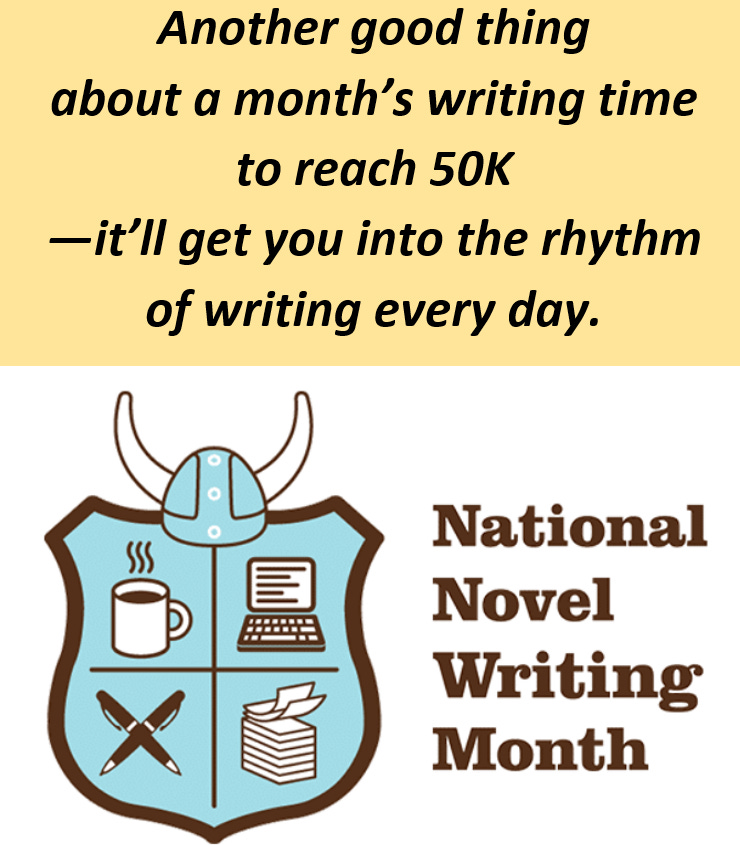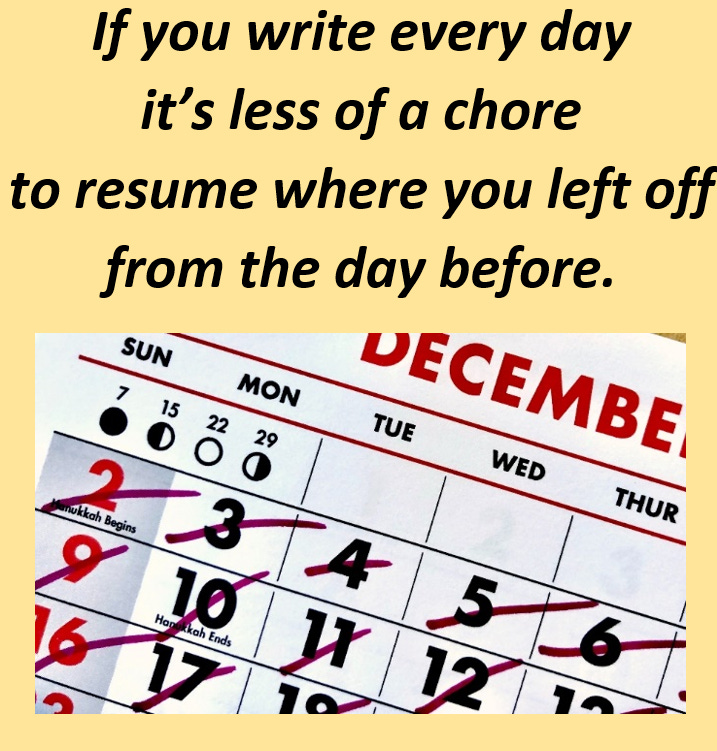My first reaction was irritation.
No way, I told my friend. I have two young kids, I work 40+ hours a week, and I’m married. I’m writing as often as I can. I couldn’t possibly find the time to write every day.
The irritating friend was penpal Gene KoKayKo, and he had the chops. He was a prolific, multi-published fiction-writer. His finace, another fine writer, Sherrie Brown, introduced us. Sherrie, Gene and I, and also just Gene and I co-authored stories together which were later published. I looked up to Gene as a mentor. And now we had gotten close enough that he felt he needed to tell me this. I still recall first reading his words.
You have to write every day. There’s simply no other route to improving and getting things accomplished, the late great writer wrote me.
Told you this one was going to be personal.
Gene’s words stuck in my mind. I sought out articles, mostly to prove him wrong. Surely writing every day couldn’t be worth the remarkable discipline necessary. Then I found lists (not these lists, but lists like these. Because they were/are everywhere):
On the Writing Cooperative on Medium, David Ferrers lists 9 benefits.
On the Kotobee Blog, Kristen Savage cites 10 pluses for daily writing.
In Forbes, Helen R. Morgan reveals 7 reasons to do it.
Some sources, such as Zen Habits, even tout an improved lifestyle to those who make a daily commitment.
Masterclass not only lists benefits to writing every day, but suggests a step-by-step method for actually doing it.
We’ll have no how-to suggestions in this issue. This is more a why-to. This is what my friend Gene was trying to share in his letters, which kept arriving like clockwork, always gentle but insistent, making me think. You’ve got to write every day, he’d repeat. And now all those pesky experts were singing the same tune.
To be balanced, there are cons along with the pros, such as those in this K.M. Weiland piece: “Do You Have to Write Every Day?” from her excellent Helping Writers Become Authors site. But in the same piece she introduces the following inspiring Peter de Vries quote, which only pushed me further toward the truth:
Thus followed for me a season of dubiety (or uncertainty). I was in a state of a rather reasonable denial: beginning to suspect that indeed writing every day would somehow have to happen, but still closed off to the reality of making it so.
My writing pattern had been haphazard. I’d fit it in when I didn’t have other obligations, which sometimes led to many skipped days. Slowly, I began to squeeze in writing sessions. I tried writing very early, before work and before family was up. I wrote in my car if I only had a few minutes (as mentioned in issue #19), during my lunch break at work (see issue #21), and occasionally tried late at night. I also began toying with new approaches to family and friends (next issue: #24).
Over time, I noticed that the extra writing helped. I was selling additional short stories and articles, I was producing a lot more, and most importantly, I was getting better. Yet I was still missing too many days. I was closer to Gene’s goal for me, but I hadn’t reached it yet.
Somewhere in here Gene got sick.
His sickness is important, but the details aren’t. Suffice it to say that something in his gut wasn’t right. Gene was unable to eat, losing weight, and in a fair amount of pain. I knew it was serious, because he stopped writing. His precious fiction. His letters to me. Everything.
It was my turn to lead, or so I thought. I continued to send letters, but now I was the encourager. Writing was, after all, his raison d'etre, his very reason for being. If I could get him back to that, I figured, there was hope. You have to write, I pleaded. Push through it and write.
Playing mentor was the final motivator I needed. To add credibility to my message, I pushed it over the top and began creating seven days a week.
Ironically, I started writing every day at the same time Gene was forced to stop. And he was forced. His creative retirement wasn’t a matter of lack of will or character. A terminal illness, in fact, was perhaps the only factor which could have halted a creative spirit like his.
It's been over 25 years since he died, and I have not missed a day of writing since, partly in honor to him, partly in acknowledgement that he was right. Thanks, my friend. I’ll never forget you.
Last issue (#22) we mentioned NaNoWriMo, in which writers push themselves to produce. Here’s one more shoutout to this program in reference to this issue’s subject:
After I sent out a certain pro-daily-writing X-post, I received the following:
Q: British author Jo Van Every suggests writing five days a week, then taking weekends off. What do you think of this instead of writing daily?
A: I had not heard of her idea (here). It does seem an interesting compromise. Van Every notes that a writer who tries this system will get a fresh perspective from taking time off, but also admits that “there are negative effects from time away from your project.”
This leads to a big reason I advocate writing daily: missing even one day means that my next session I’d be wasting time getting back up to speed. If I don’t miss a day, I pick up seamlessly from where I stopped. It’s a big consideration if you are writing long fiction, and you can’t easily get around it.
Well, it’s been that kind of issue. Appropriately, with all this talk about word-meister Gene KoKayKo, we’ve had a surplus of wonderful words, leading to a TWO-word Vocab Quiz.
Be confident in this first one.
What is dubiety?
And…this second word might be very important to you, indeed.
What is raison d'etre?
(Did you recall both of them?)
Action Plan
Want to sink your teeth into my serial-length story about a haunted hunting lodge and the two out-of-towners who stumble across it? Check out The Lodge at Fear Summit, only on Kindle Vella. The first episodes are free.
Next up:
Keeping on Track #2, an occasional series aimed at keeping your writing focus.
#24) Self-Doubt & Writer’s Guilt. See you in two weeks!
Craig
























If you're emailing you're writing. If you're posting you're writing. Yes you can do it